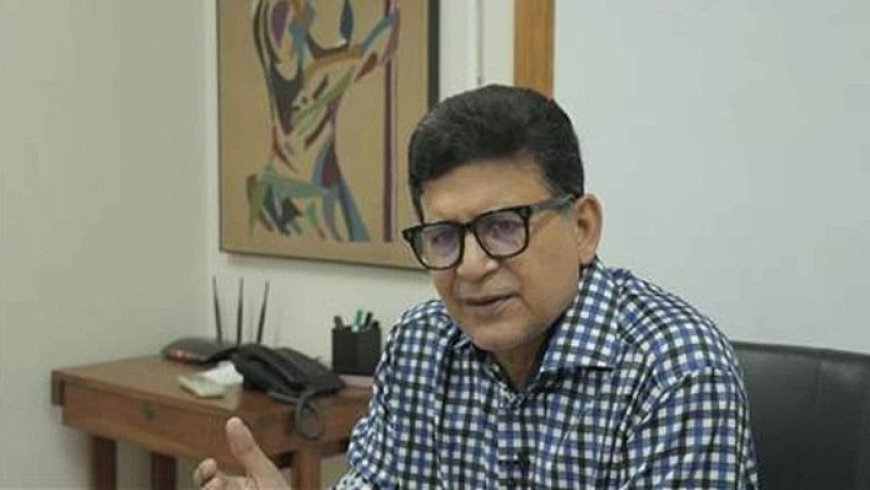Political Settlement Dialogue Overlooks Public Participation
Dr Hossain Zillur Rahman, economist and executive chairman of the Power and Participation Research Centre (PPRC), who served as an advisor in the 2007-08 caretaker government, shares insights on the nation’s political landscape, necessary reforms, and concerns over growing religious extremism in an interview with Prothom Alo’s AKM Zakaria and Monzurul Islam.

Prothom Alo: Won’t political consensus be necessary to establish a roadmap?
Hossain Zillur Rahman: The term “consensus” is being used frequently nowadays, yet its scope and intent remain unclear. Efforts to build consensus are often incomplete and overly bureaucratic. Creating consensus is inherently a political process that requires ongoing engagement among multiple actors, each with distinct perspectives. It demands a confidence-building approach that puts national interest above all. Unfortunately, the current method resembles a desk-bound, bureaucratic exercise—like using an MCQ format to find agreement—which misses the essential political essence of consensus-building.
Prothom Alo: If we fail to achieve political consensus, will that lead to a new crisis?
Hossain Zillur Rahman: Crises are a constant in Bangladesh—be it political, natural, or economic. What matters is avoiding unnecessary crises. Contrasting opinions are natural in politics and should be managed constructively. The challenge lies in harmonising different viewpoints through political understanding. Unfortunately, the interim government’s current methods show significant limitations in this regard.
Prothom Alo: Reforms are being widely discussed. What is your take on the reform process?
Hossain Zillur Rahman: "Reform" has become a buzzword, but its meaning is often misunderstood. It should be viewed from three dimensions. First, we must improve the efficiency of state institutions, which suffer from excessive bureaucracy and lack implementation capability. Reforms must focus on service delivery, particularly in sectors like health and education. The primary barrier is the entrenched administrative culture that prioritizes cronyism over merit. Second, power structure reform is essential to check authoritarian tendencies. This includes addressing excessive concentration of power in the Prime Minister’s office, unchecked influence of MPs, and misuse of police and judiciary. Third, reforms should promote societal development—better urban infrastructure, knowledge-based systems, and innovation. When reforms are seen through these lenses, public involvement increases, enhancing legitimacy. Sadly, current reform dialogues remain one-sided and disconnected from the people.
Prothom Alo: The phrase "new political settlement" is gaining traction. How far have we progressed?
Hossain Zillur Rahman: The term seems borrowed from academic theory, but what concerns me is the absence of people’s voice in these discussions. Just like with reforms, the discourse is elitist. Political settlement is not only for political or economic elites; it must involve citizens. Excluding them risks prioritising elite interests over public good. Despite leaders claiming to represent the people, their voice is absent from key discussions—this has been a glaring omission over the past several months.
Prothom Alo: How can people be better involved in these processes?
Hossain Zillur Rahman: Currently, government advisors limit themselves to office work, avoiding direct public engagement. This is a mistake. Politicians must actively engage with farmers, workers, and industrialists to understand ground realities. While there are occasional forums, they are usually unidirectional—with a few speaking and others merely listening. This does not establish a real connection with the public.
Prothom Alo: Students have played key roles in our political history. For the first time, they are seeking direct power. What is your view?
Hossain Zillur Rahman: Political participation by youth is positive, and I prefer not to make hasty judgments about new parties. But youth politics should not mirror old patterns. The spirit of youth is about ideology, sacrifice, and innovation. Unfortunately, the new party also appears to focus on power politics and mass display, much like older parties. A true shift in political culture is yet to be seen.
Prothom Alo: There’s debate about inclusivity in the upcoming election, particularly regarding parties like Awami League and Jatiya Party. What should be the principle?
Hossain Zillur Rahman: Elections must be inclusive in principle. No party should be barred arbitrarily. However, crimes committed during previous regimes—killings, financial scandals—must be tried through due legal process. Individuals involved can be disqualified legally, not through executive orders. The Awami League must introspect, express public regret, and prove genuine change. Only then should they re-enter electoral politics, allowing voters to judge their future.
Prothom Alo: A National Citizen Party leader recently claimed the army is helping to rehabilitate Awami League. What is your response?
Hossain Zillur Rahman: Such accusations are unfortunate and unwarranted. Bangladesh faces challenging geopolitical conditions, and unity among state institutions is vital. The army is a key pillar of national strength. Irresponsible statements that politicise or weaken such institutions are dangerous. The idea of rehabilitating any party with a record of crimes should never be part of a state agenda.
Prothom Alo: Some warn of a rise in religious extremism. Is this a concern?
Hossain Zillur Rahman: While extremism exists, there are also exaggerated narratives—sometimes from abroad. Addressing extremism requires more than law enforcement; it demands ideological and political engagement. Bangladesh has a rich tradition of pluralism. We must protect this legacy and counter any radicalism—left or right—with both administrative and ideological resolve.
Prothom Alo: Thank you for your time.
Hossain Zillur Rahman: Thank you.
What's Your Reaction?





















































































